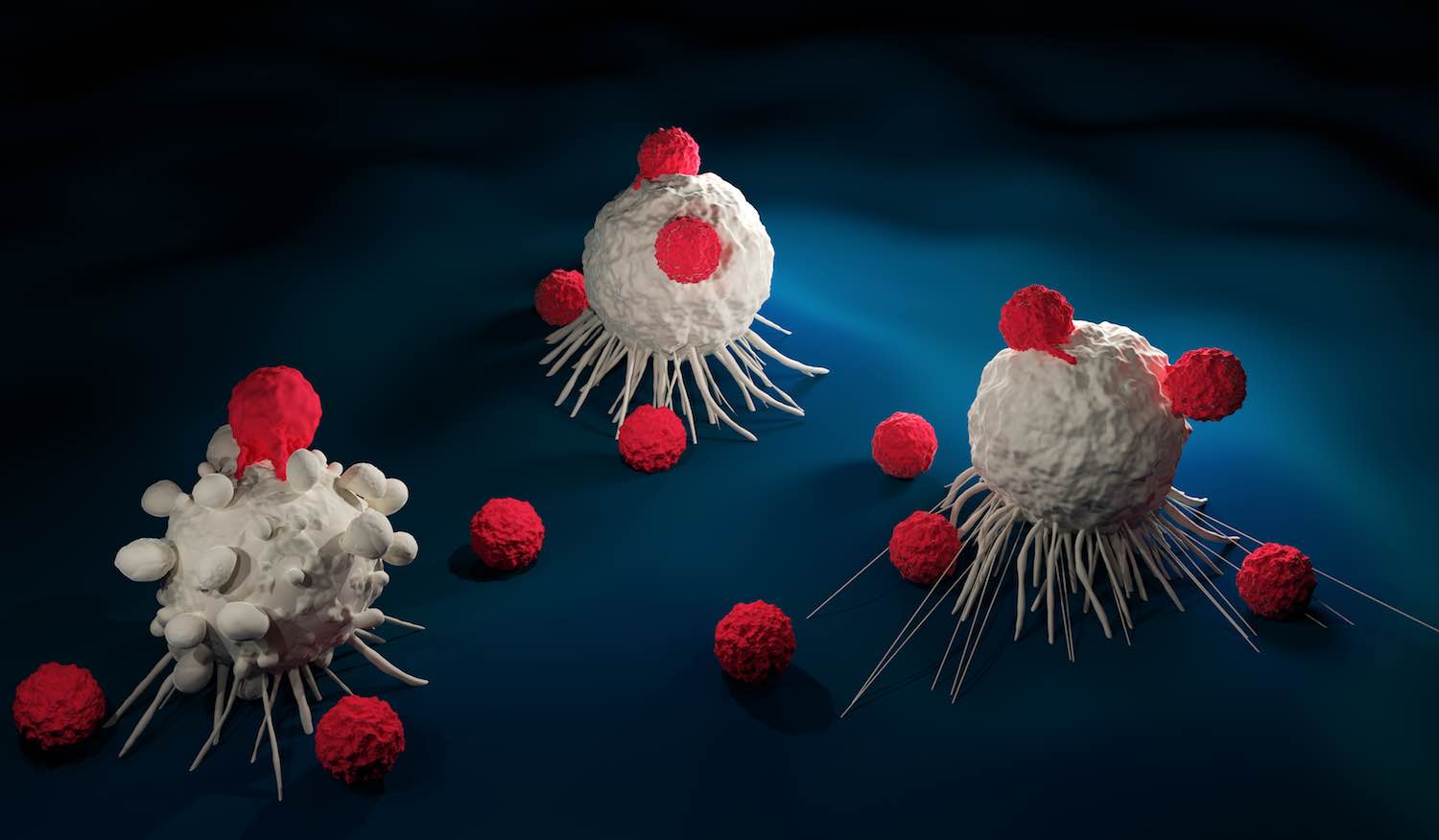Posts by author
Janet Fricker
100,000 Genomes Project pinpoints new cancer genetic culprits
DNA analysis of thousands of tumours in the 100,000 Genomes project has uncovered a ‘treasure trove’ of 58 new mutational signatures causing cancer. The study, published in Science, 21 April, showed that while there are common signatures for cancers arising…
IL-6 provides missing link between exercise and colon cancer protection
Interleukin-6 (IL-6) molecules released into the systemic circulation during exercise elicit biological effects limiting colon cancer cell proliferation. The UK study, published in International Journal of Cancer, 7 April, provides a potential mechanism of action explaining how regular physical activity…
CAR T-cell therapy shows efficacy in solid tumours
A CAR T-cell therapy first-in-human study demonstrated early signs of efficacy for patients with a range of solid tumours, including testicular and ovarian cancers. The study, presented at the American Academy of Cancer Research (AACR) 2022 Annual Meeting (8-13 April…
No link between brain tumours and ‘usual’ use of mobile phones
‘Usual’ use of mobile phones does not increase the incidence of brain tumours. The prospective study, published in the Journal of the National Cancer Institute, 30 March 2022, found no statistically significant associations between ‘ever’ users and ‘never’ users of…
Radiologists urged to report breast arterial calcification for CVD prevention
Routine mammograms could be used to provide additional information about women’s risk of cardiovascular disease (CVD). The study, published in ‘Circulation: Cardiovascular imaging’, March 15, found women with breast arterial calcification had a 51% higher risk of heart attacks and…
Colorectal cancer linked to lifetime of excess weight
Cumulative lifetime exposure to excess weight accounts for a larger share of Colorectal cancer (CRC) risk than previously appreciated. The German study, published in JAMA Oncology, 17 March, demonstrates the importance of characterizing long-term exposure to weight gain and making…
European Cancer Community urged to sign-up to help Ukrainian patients
The European Cancer Organisation (ECO) and American Society of Clinical Oncology (ASCO) have launched a network to provide an infrastructure to support Ukrainian cancer patients. The Special Network on the Impact of the War in the Ukraine on Cancer, launched…
No reason to delay cancer immunotherapy following antibiotic use
Exposure to antibiotics prior to anti-PD-1 antibody treatment had no effect on melanoma outcomes. The French study, reported in the Journal of the National Cancer Institute (published March 7, 2022), found using antibiotics in a large cohort of advanced melanoma…
Harmful bacteria play greater role in predicting outcomes of immune checkpoint blockade in melanoma
Harmful gut bacteria may play a greater role than beneficial bacteria in determining efficacy of immune checkpoint blockade in melanoma patients. The study, published in Nature Medicine (28 February), found microbial signatures containing Lachnospiraceae species were connected to favourable anti-programmed…
Starting age for MRI breast screening defined for three genetic mutations
Annual magnetic resonance imaging (MRI) starting from age 30 to 35 years followed by combined annual MRI and mammography from age 40 may reduce breast cancer mortality by over 50% for women with ATM, CHEK2, and PALB2 breast cancer genetic…










